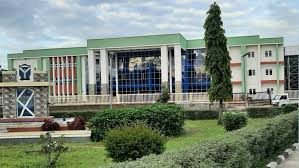The University of Maiduguri Teaching Hospital (UMTH) has successfully conducted its second living-donor kidney transplant, marking a significant milestone 15 years after the hospital’s first such procedure.
The Chief Medical Director (CMD) of UMTH, Prof. Ahmed Ahidjo, made the announcement during a press briefing held on Wednesday in Maiduguri.
“This is not the first time UMTH is performing a transplant. The first kidney transplant was carried out in August 2010. Now, the hospital is back in full force to resume the exercise,” Ahidjo said.
He revealed that 20 patients have already been admitted and are currently awaiting kidney transplant surgeries.
The CMD appealed to well-meaning individuals and organisations to donate funds to support underprivileged patients who cannot afford the procedure, despite UMTH’s efforts to keep costs minimal.
Ahidjo noted that although UMTH is a federal government facility providing many services for free, dialysis for kidney patients has been heavily subsidised, costing only ₦12,000 per session—less than $8—compared to the $1,000 typically charged in private facilities.
“Our goal is to make kidney transplants among the most affordable in West Africa. UMTH is the largest facility of its kind in Nigeria and can accommodate up to 85 patients at once,” he said.
He added that the hospital has four fully equipped operating theatres dedicated solely to kidney transplants, all furnished with modern, state-of-the-art medical equipment.
The CMD expressed gratitude to TETFUND for its continuous support in providing equipment and improving hospital infrastructure. He also praised Borno State Governor, Prof. Babagana Zulum, for his ₦50 million donation to support research into the causes of kidney-related diseases in the North-East.
“Preliminary findings from our research indicate that diabetes, hypertension, and dehydration are major contributing factors. We’ve collected many samples, and the final laboratory results are still being awaited,” Ahidjo added.
He emphasized that while some causes are becoming clearer, further research is critical to better understand and prevent the rising incidence of kidney disease in the region.


